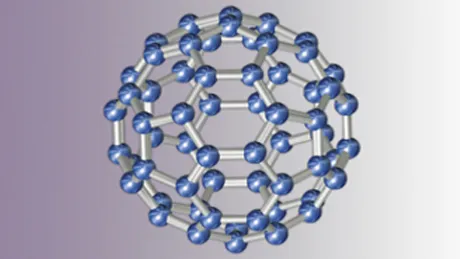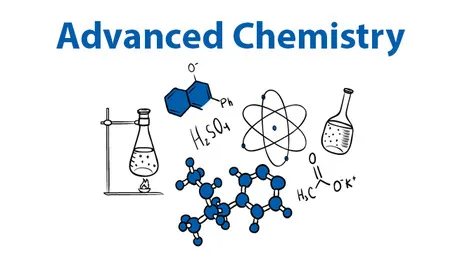
One and two dimensional NMR Spectroscopy for chemists 
This course provides an introduction to one and two dimensional NMR spectroscopy for chemists. It covers topics such as NMR spectral parameters, analysis of 1H and 13C NMR spectra, selective and broadband decoupling, polarization transfer and spectral editing techniques, multi-dimensional NMR, relaxation processes, and NMR in solid state. Practical aspects of obtaining high resolution NMR spectra and Magic Angle Spinning are also discussed. ▼
ADVERTISEMENT
Course Feature
![]() Cost:
Cost:
Free
![]() Provider:
Provider:
Swayam
![]() Certificate:
Certificate:
No Information
![]() Language:
Language:
English
![]() Start Date:
Start Date:
Self Paced
Course Overview
❗The content presented here is sourced directly from Swayam platform. For comprehensive course details, including enrollment information, simply click on the 'Go to class' link on our website.
Updated in [May 25th, 2023]
This course provides an overview of one and two dimensional Nuclear Magnetic Resonance (NMR) spectroscopy for chemists. In Week 1, the course will cover the conceptual understanding of NMR spectroscopy. Week 2 will focus on NMR spectral parameters I (chemical shifts). Week 3 will cover NMR spectral parameters II (scalar and dipolar couplings). Week 4 will analyze 1H NMR spectra with numerous examples. Week 5 will discuss selective and broadband, homo and heteronuclear decoupling, with examples. Week 6 will analyze NMR spectra of 13C and many other heteronuclei. Week 7 will introduce polarization transfer and spectral editing techniques, APT, DEPT and INEPT. Week 8 will cover introduction to multi-dimensional NMR. Week 9 will analyze 2D COSY, TOCSY, HSQC, NOESY spectra with examples. Week 10 will discuss practical aspects of obtaining high resolution NMR spectra. Week 11 will cover relaxation processes, their measurement and utility in understanding molecular dynamics. Week 12 will discuss NMR in solid state, Magic Angle Spinning and Cross polarization.
[Applications]
After completing this course, students should be able to apply their knowledge of one and two dimensional NMR spectroscopy to analyze and interpret NMR spectra of various nuclei. They should be able to identify and quantify chemical shifts, scalar and dipolar couplings, and use selective and broadband decoupling techniques. They should also be able to use polarization transfer and spectral editing techniques, such as APT, DEPT and INEPT. Furthermore, they should be able to analyze 2D COSY, TOCSY, HSQC, and NOESY spectra, as well as understand the practical aspects of obtaining high resolution NMR spectra. Finally, they should be able to understand relaxation processes and their measurement, and use them to understand molecular dynamics.
[Career Paths]
1. NMR Spectroscopist: NMR spectroscopists are responsible for operating and maintaining NMR spectrometers, analyzing data, and interpreting results. They must have a strong understanding of the principles of NMR spectroscopy and be able to apply them to solve complex problems. As the field of NMR spectroscopy continues to evolve, NMR spectroscopists must stay up to date on the latest developments and techniques.
2. NMR Research Scientist: NMR research scientists are responsible for designing and conducting experiments using NMR spectroscopy. They must have a strong understanding of the principles of NMR spectroscopy and be able to apply them to solve complex problems. They must also be able to interpret data and develop new methods and techniques for NMR spectroscopy.
3. NMR Applications Specialist: NMR applications specialists are responsible for developing and implementing new applications for NMR spectroscopy. They must have a strong understanding of the principles of NMR spectroscopy and be able to apply them to solve complex problems. They must also be able to interpret data and develop new methods and techniques for NMR spectroscopy.
4. NMR Data Analyst: NMR data analysts are responsible for analyzing and interpreting data from NMR spectroscopy experiments. They must have a strong understanding of the principles of NMR spectroscopy and be able to apply them to solve complex problems. They must also be able to interpret data and develop new methods and techniques for NMR spectroscopy.
The field of NMR spectroscopy is rapidly evolving, and the demand for skilled professionals is increasing. As the technology advances, new applications and techniques are being developed, and the need for skilled professionals is growing. As such, the job prospects for NMR spectroscopists, research scientists, applications specialists, and data analysts are expected to remain strong in the coming years.
[Education Paths]
1. Bachelor of Science in Chemistry: This degree program provides students with a comprehensive understanding of the fundamentals of chemistry, including topics such as organic chemistry, physical chemistry, and biochemistry. Students will also gain an understanding of the principles of NMR spectroscopy and its applications in the field of chemistry. This degree program is becoming increasingly popular as it provides students with the necessary skills to pursue a career in the field of chemistry.
2. Master of Science in Analytical Chemistry: This degree program focuses on the application of analytical techniques to solve problems in the field of chemistry. Students will gain an in-depth understanding of NMR spectroscopy and its applications in the field of analytical chemistry. This degree program is becoming increasingly popular as it provides students with the necessary skills to pursue a career in the field of analytical chemistry.
3. Doctor of Philosophy in Chemistry: This degree program provides students with an advanced understanding of the fundamentals of chemistry, including topics such as organic chemistry, physical chemistry, and biochemistry. Students will also gain an understanding of the principles of NMR spectroscopy and its applications in the field of chemistry. This degree program is becoming increasingly popular as it provides students with the necessary skills to pursue a career in the field of chemistry.
4. Doctor of Philosophy in Analytical Chemistry: This degree program focuses on the application of analytical techniques to solve problems in the field of chemistry. Students will gain an in-depth understanding of NMR spectroscopy and its applications in the field of analytical chemistry. This degree program is becoming increasingly popular as it provides students with the necessary skills to pursue a career in the field of analytical chemistry.
Course Provider

Provider Swayam's Stats at AZClass
Discussion and Reviews
0.0 (Based on 0 reviews)
Explore Similar Online Courses

Six Sigma

Python 3: An interactive deep dive

Python for Informatics: Exploring Information

Social Network Analysis

Introduction to Systematic Review and Meta-Analysis

The Analytics Edge

DCO042 - Python For Informatics

Causal Diagrams: Draw Your Assumptions Before Your Conclusions

Whole genome sequencing of bacterial genomes - tools and applications

General Chemistry: Concept Development and Application

Advanced Chemistry


Start your review of One and two dimensional NMR Spectroscopy for chemists